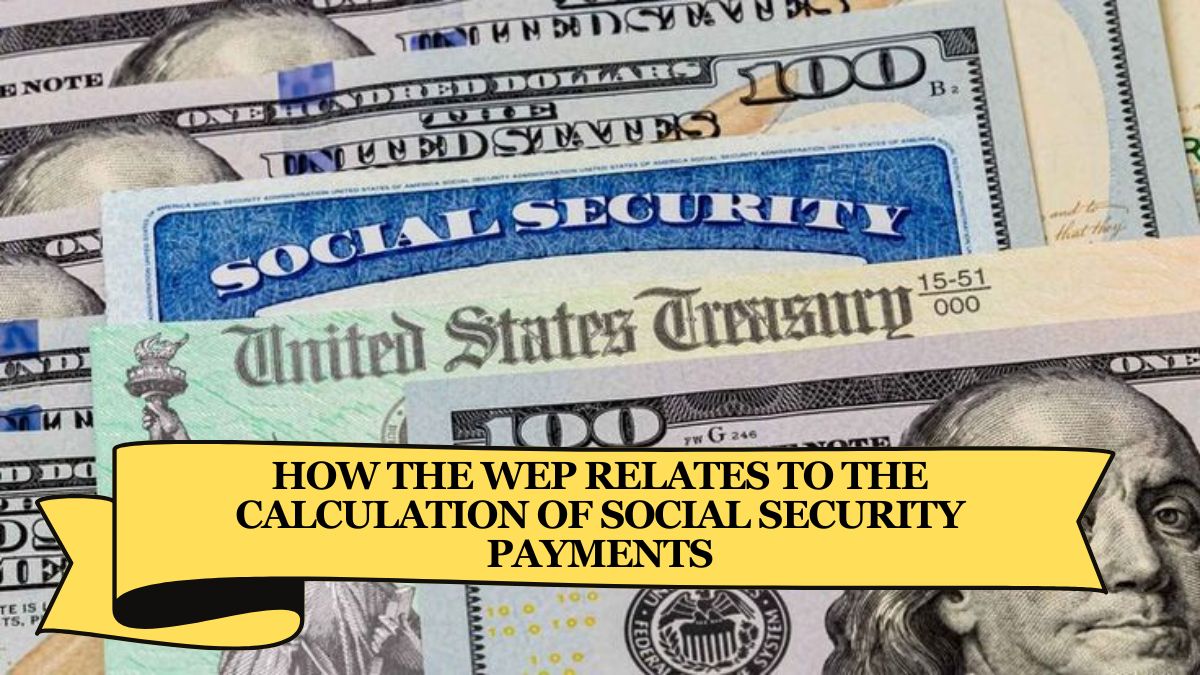If you’ve worked in jobs where you paid into Social Security and also have earned income from jobs that didn’t pay into Social Security, you might have heard about the Windfall Elimination Provision (WEP). This rule affects how your Social Security benefits are calculated. Understanding how WEP works can be tricky, but it’s essential to know because it can lower your Social Security payments. In this article, we will explain the WEP in simple terms, how it affects your benefits, and what you can do about it.
What is the Windfall Elimination Provision (WEP)?
The Windfall Elimination Provision (WEP) is a rule that reduces the amount of Social Security benefits for people who have worked both in jobs that paid into Social Security and in jobs that didn’t (like some government jobs). When you have earned Social Security credits from jobs that paid into the system, the amount you get from Social Security depends on how many years you worked and how much you earned.
However, if you worked in a government job where you didn’t pay into Social Security (often because you were part of a pension system), WEP can reduce your monthly Social Security payment. The idea behind WEP is that people who have worked in both types of jobs might end up getting more money from Social Security than someone who worked only in Social Security-covered jobs. WEP is designed to make the benefits more fair.
How Does WEP Affect Social Security Payments?
The amount your benefits will be reduced depends on how many years you worked in jobs that paid into Social Security. The Social Security Administration (SSA) uses a special formula to calculate how much you will receive, and WEP changes that formula.
Normally, the more you earn, the higher your Social Security payment will be, because the SSA uses a formula called the Average Indexed Monthly Earnings (AIME). Under AIME, people who have worked longer and earned more money get a higher benefit. However, under the WEP, this formula is adjusted to lower the amount you receive, especially if you didn’t work for many years in Social Security-covered jobs.
If you have fewer than 30 years of work in Social Security-covered jobs, the WEP will apply. The more years you have in jobs where you paid into Social Security, the less WEP will affect your payment. Once you have 30 or more years of such work, WEP no longer reduces your benefits.
WEP Formula for Reducing Benefits
The Social Security Administration has a special formula for reducing benefits due to WEP. Normally, the SSA uses three “bend points” to calculate your benefits. But with WEP, the first bend point is reduced, meaning the SSA will calculate your benefits as if you earned less money. This lower first bend point causes a reduction in the amount of Social Security payments you will receive.
For example, if you are affected by WEP and have worked fewer than 30 years in jobs covered by Social Security, you could lose a significant portion of your benefits, particularly when compared to someone with a similar work history who worked only in Social Security-covered jobs.
How to Avoid WEP Reductions
While you cannot completely avoid WEP if you have worked in jobs that did not pay into Social Security, there are ways to minimize the reduction in your benefits:
- Work More Years in Social Security-Covered Jobs: The more years you work in jobs that pay into Social Security, the smaller the reduction will be.
- Get a Social Security Estimate: The SSA can provide you with a statement showing how much Social Security you can expect. This can help you understand how WEP may affect you and plan for retirement accordingly.
- Consider Retirement Plans Carefully: If you are working in a job that doesn’t pay into Social Security, you may have other retirement benefits, such as a pension, to help offset the WEP reduction.
Can You Appeal WEP?
If you believe that WEP has been applied incorrectly to your Social Security benefits, you may be able to appeal the decision. In some cases, the SSA may make an error when calculating your benefits, and it can be corrected. Contacting the SSA to clarify your work history or the WEP rules might help if you think your benefits are being reduced unfairly.
Conclusion
The Windfall Elimination Provision (WEP) affects the amount of Social Security benefits you receive if you have worked in jobs that didn’t pay into Social Security. While it can reduce your monthly payments, understanding how it works can help you plan for your future. The reduction depends on how many years you worked in Social Security-covered jobs. If you have worked for less than 30 years in these jobs, WEP will reduce your benefits more. However, if you have worked for more than 30 years in jobs that paid into Social Security, the impact of WEP will be smaller.
It’s essential to know how WEP works and how it might impact your future Social Security benefits. By working more years in Social Security-covered jobs or planning with other retirement savings, you can reduce the effect of WEP on your Social Security payments. Always keep an eye on your Social Security estimates and talk to the SSA if you have any questions about how your work history might affect your benefits.
Must Visit: California State Online

